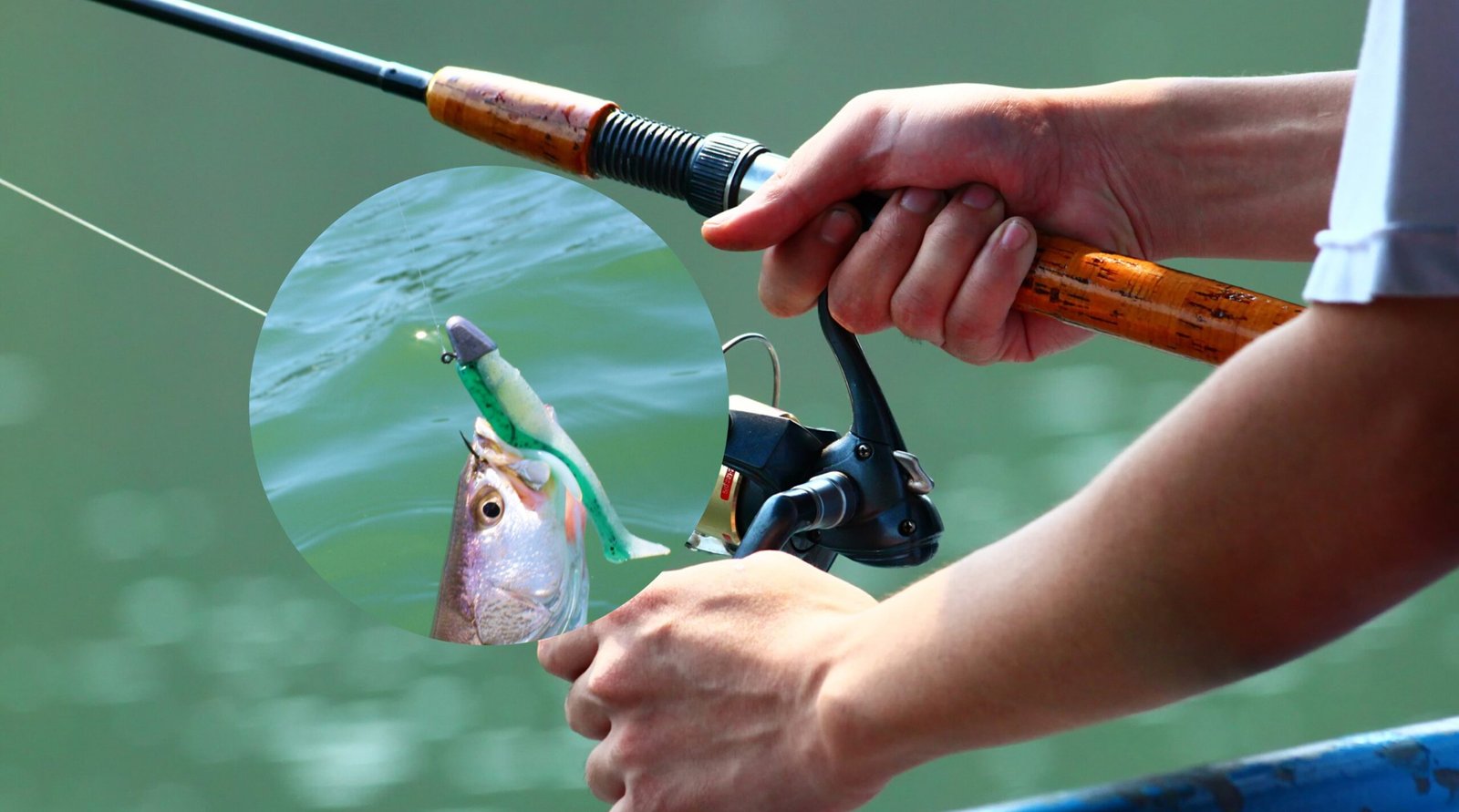Best Rod for Fluke Fishing Bass: Top Choices and Techniques
Fluke fishing for bass has become increasingly popular among anglers, as it offers an exciting and versatile way to target this highly sought-after gamefish.
To be successful in fluke fishing, it’s essential to have the right gear, and one of the most crucial pieces of equipment is the rod.
This article aims to help you identify the best rod for fluke fishing bass by discussing fluke fishing techniques, ideal conditions, and top rod recommendations.
Understanding Fluke Fishing for Bass
Fluke-Style Baits and Their Versatility
Fluke-style baits are soft-plastic jerkbaits that closely imitate the movement of small baitfish. They are highly versatile and can be used to target different bass species in various situations. Fluke baits can be rigged in several ways, including:
- On a jighead
- Carolina-rigged
- Texas-rigged
- Weightless
Techniques for Fluke Fishing Success
To make the most of your fluke fishing experience, it’s essential to master various techniques. Some of the most effective fluke fishing methods include:
- Fishing weightless flukes: This technique involves casting the bait and allowing it to sink slowly, imitating the natural movement of a wounded baitfish.
- Texas rig for navigating rocks and brush: Rigging the fluke bait weedless with an offset shank hook enables you to fish in rocky and brushy areas without getting snagged.
- Varying retrieve speed and pause length: Changing the speed at which you retrieve the bait and altering the pause duration can trigger strikes from bass that might be following your lure.
- Line-through technique with treble hooks: This method involves threading the line through the bait and attaching a treble hook, allowing for better hook-ups and fewer missed strikes.
- Playing the fish and making bait move: Subtle jerks and twitches of the rod tip can impart life-like movements to the bait, enticing bass to strike.
Fluke Colors for Different Conditions
Choosing the right color for your fluke bait can significantly impact your success on the water. Some general guidelines for selecting fluke colors include:
- White, pearl, and baby bass for clear water and bright conditions
- Darker colors for overcast days and murky water
- Bright colors to attract attention in stained water
Ideal Fishing Conditions for Fluke Fishing Bass
Certain conditions are more favorable for fluke fishing bass than others. Some of the best conditions for this technique include:
- Close to shore or in shallow water, where bass are likely to be feeding
- Post-spawn period, when big bass are hungry and more aggressive
- Clear water, which allows bass to see the bait more easily
- Windy conditions, as wind can create current and oxygenate the water, encouraging bass to feed more actively
Best Rods for Fluke Fishing Bass
Factors to Consider When Choosing a Rod
When selecting the best rod for fluke fishing bass, there are several factors to consider, including:
- Length: A longer rod allows for greater casting distance and increased line pick-up during hook-setting.
- Power: Medium to medium-heavy power rods are ideal for fluke fishing, as they provide enough backbone to handle larger bass.
- Action: Extra fast action rods are recommended for sensitivity and better hook-setting power.
- Material: Bamboo and carbon fiber rods offer different levels of sensitivity, durability, and performance.
Recommended Rod and Reel Setups
Depending on the fishing conditions and cover, you may need to adjust your rod and reel setup. Some suggested setups include:
- Open water: 7′ medium-light, extra fast action rod with a high-speed reel and 10-lb PowerPro line
- Heavy cover: 7′ medium, extra fast action rod with a high-speed reel and 30-50 lb PowerPro line
Top Rod Options for Fluke Fishing Bass
Based on the factors mentioned earlier, here are some of the best rod options for fluke fishing bass:
- 6’4″ medium power moderate action St. Croix custom rod
- 7′ Lamiglas XMG50 LP844 rod
- 6’10’ M/F spinning rod
- 6’9′ MH/F Veritas casting rod
- 7’3′ M/F casting rod
- 7’2′ MH Falcon Cara Mike McClelland casting rod
- Dobyns Fury 733c
- 6’2′ M/XF Avid casting rod
- Loomis mbr783c MH/F
Fishing rod terminology: M is Medium Power. H is Heavy Power. MH is Medium-Heavy Power. F is Fast Action. XF is Extra-Fast Action.
Flounder Fishing: A Similar but Different Game
Differences between Fluke Fishing for Bass and Flounder Fishing
While fluke fishing for bass and flounder fishing may seem similar, there are some key differences to consider:
- Flounder’s ambush behavior: Flounder are ambush predators that lie flat on the bottom, waiting for prey to swim by. This behavior requires a different approach when fishing for them.
- Importance of covering ground: To successfully target flounder, anglers need to cover a lot of ground, as these fish can be scattered across large areas.
Recommended Rods for Flounder Fishing
When targeting flounder, you’ll need a rod that is lightweight and sensitive, yet strong enough to handle big flounder. Some top rod options for flounder fishing include:
- KastKing Centron Spinning Combo: This 7′ fluke rod offers excellent casting distance and sensitivity, while the 3000 size reel provides sufficient power for flounder fishing.
- Daiwa Saltwater BG Spinning Combo: This combo is a durable and reliable option for flounder fishing, with a strong rod and reel suitable for saltwater conditions.
- Penn Battle Spinning Combo: Another popular choice for flounder fishing, the Penn Battle combo offers a strong and sensitive rod paired with a powerful reel.
Conclusion
Choosing the right rod for fluke fishing bass is essential for success on the water. By understanding the various techniques, ideal conditions, and top rod options, you can make an informed decision and enhance your fluke fishing experience. Don’t be afraid to experiment with different gear and techniques to find what works best for you and enjoy the thrill of fluke fishing for bass.

